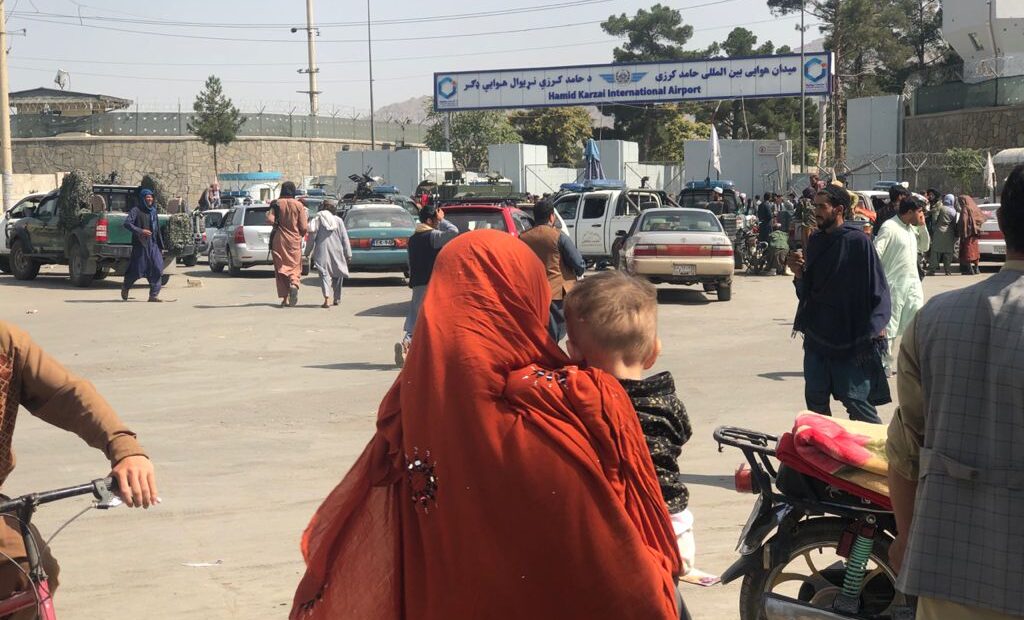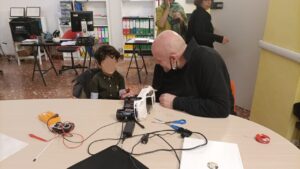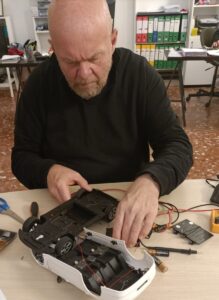
Workshop
Fleeing Afghanistan

The story of an Afghan family who fled their country and arrived in Italy: between separation, pain and concrete gestures of welcome.
On August 31, an Afghan family of 7 boarded the last plane from Kabul to Italy. Two elderly parents, 3 children aged 35 to 18, 2 grandchildren aged 7 and 5. One of the daughters didn’t make it onto the plane. One of them, however, didn’t want to: her fiancé stayed back, and they don’t know if they will ever see each other again. Complicated stories weave around this family unit. Now most of them are in Italy, in a social cooperative. They are trying to start a new life.
“They came here leaving their home, their affections, everything in Afghanistan. And they know they will probably never be able to return. Behind such a choice there are economic, religious, or ethnic reasons. But often the biggest reason is the hope of providing a different future for their children.” This is how Gianni Caucci, a collaborator of the Cooperativa Una Città Non Basta of Marino laziale, which welcomed them, tells us. Before Pandemic, the activities carried out in this facility were after-school activities for children in need and assistance of migrants and marginalized people.
“The idea for the Cooperative came from opening our eyes to our local area, our neighborhood, our neighbor in need. At first it was just volunteering, then we realized that some activities needed to be done professionally.” Now psychologists, cultural mediators and lawyers work there. Since September, the objective of Una città Non Basta has become to accompany this Afghan family, trying to make them feel at home as much as possible. “It sounds silly, but it’s so important for them to be able to find their cooking, their smells, their way of doing things here too”.

It’s not easy to walk the streets of a country that’s not your own, where people speak a language you don’t understand and do things differently. And it’s certainly harder if you’re a woman. The boys in the family now go to school, the girls have not been used to it. “The westernization that had come to Kabul,” Gianni explains, “was certainly not the norm in so many recesses of Afghanistan far from the capital.” Used to staying at home, even now they are afraid to go out. Workshops with manual activities have been set up for them, in the hope that they will soon have the courage to take their first step into the (new) society.
However, difficulties also exist for men, even when they try to hide it. One day the father of the family, about 70 years old, was found lying on the floor. “He seemed to be physically sick,” Gianni says, “but then we realized he just needed attention. Until that moment he had only worried about the other family members, never about how he was.” What can it mean to leave your homeland forever, suddenly, at that age, having the responsibility of your family on you?
The next day Gianni found under the door of his study a sheet of paper with a text in ancient Persian, difficult to translate even for interpreters. It was then understood that they were verses by a poet, written with a calligraphy that was meticulous in its details. It was a valuable gift, a sign of gratitude to those who had not abandoned him and his family.
Finally, Gianni tells one last anecdote: one day, one of the family’s grandchildren approached him and showed him a remote-controlled toy car that had broken down. So he set aside the work he was doing and took a screwdriver and soldering iron and started to fix the child’s toy. “We didn’t say a single word to each other. But after that day, we became really good friends.” A welcome is built with many small, concrete bricks. It is made up of small and big gestures, of care and relationship.

The stories of those who flee from a country like Afghanistan are made of pain, separation, wounds that do not heal. But when they meet the heart and hands of someone who is ready (and prepared) to welcome them, then, perhaps, they can find a turning point. Feeling loved, not discarded, can make all the difference.





